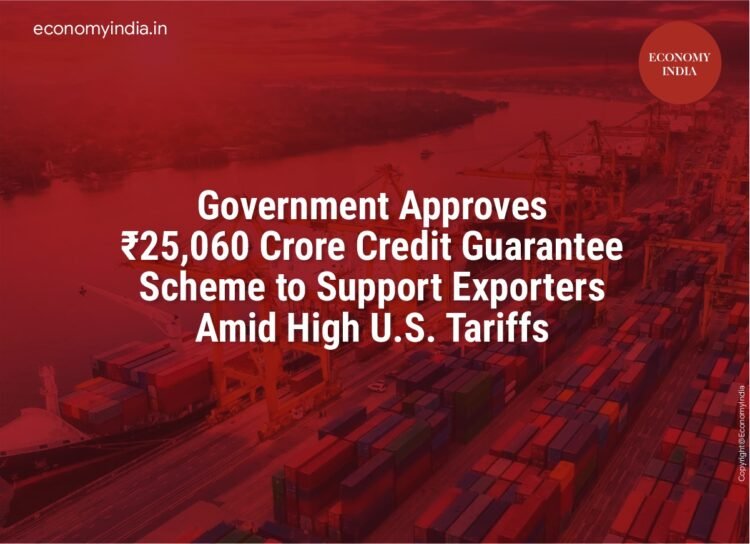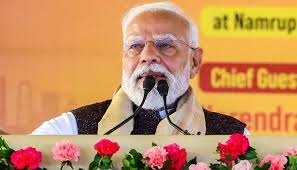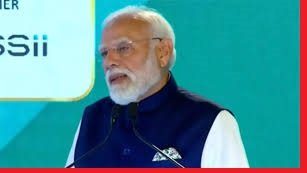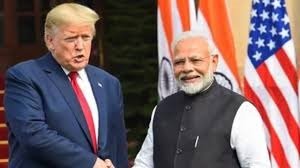MSMEs and First-Time Exporters to Get 100% Collateral-Free Loans Backed by NCGTC Guarantee; Move Aims to Boost $1 Trillion Export Target
New Delhi (Economy India): In a landmark decision to strengthen India’s export ecosystem, the Union Cabinet chaired by Prime Minister Narendra Modi has approved a Credit Guarantee Scheme for Exporters (CGSE) aimed at providing 100% collateral-free loans to exporters.
Under the new scheme, the National Credit Guarantee Trustee Company Ltd (NCGTC) will provide full credit guarantees to banks and financial institutions extending loans to eligible exporters. The initiative carries a budgetary allocation of ₹25,060 crore over six years, with ₹20,000 crore dedicated specifically to expanding the CGSE.
Officials said the move is designed to help exporters — particularly MSMEs and first-time exporters — overcome liquidity challenges, enhance competitiveness, and achieve India’s $1 trillion export target despite global headwinds such as trade barriers and tariff hikes by major partners like the United States.
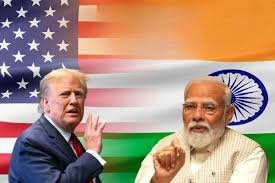
What the Scheme Offers: 100% Credit Guarantee and Easy Liquidity Access
The Department of Financial Services (DFS) under the Ministry of Finance will implement the scheme through NCGTC. The guarantee cover means exporters can obtain collateral-free loans from banks, improving cash flow and reducing dependence on personal or asset-based guarantees.
To ensure transparency and effective monitoring, a Management Committee headed by the Secretary of Financial Services will oversee the implementation, evaluate performance metrics, and ensure the scheme delivers intended outcomes.
“The CGSE is a structural reform that empowers Indian exporters with risk-free credit access, especially MSMEs that face high financing costs and collateral barriers,” said a senior government official involved in the policy design.
Four Key Benefits for Exporters
The new Credit Guarantee Scheme for Exporters promises multi-layered benefits across the export ecosystem:
- Liquidity Support: Immediate financial relief for exporters struggling with delayed payments and tariff-driven losses.
- Collateral-Free Loans: No asset pledge required, making credit more accessible and cost-efficient.
- MSME Empowerment: A major boost for small exporters contributing nearly 45% of India’s total exports.
- Market Diversification: Enables businesses to enter new and emerging global markets, reducing over-dependence on traditional trading partners.
Context: Relief from 50% U.S. Tariff Burden
The announcement comes at a time when Indian exports are facing 50% U.S. tariffs, imposed since August 2025 under President Donald Trump’s revised trade policy. The move has hit MSMEs particularly hard, leading to margin erosion and export order cancellations.
The CGSE is part of a strategic response package designed to mitigate tariff shocks, improve liquidity, and sustain export growth momentum. Sources said the government had been working on this credit protection framework since August–September 2025, when the tariff impact began to ripple across key sectors like textiles, engineering goods, and pharmaceuticals.
“This is a timely lifeline for India’s export community,” said Ravi Verma, Chairperson of the Federation of Indian Export Organisations (FIEO). “Collateral-free financing backed by sovereign guarantees will restore confidence and keep export engines running despite trade pressures.”
India’s Export Landscape: A Pillar of the Economy
Exports form a crucial part of India’s GDP, contributing nearly 21% in FY2024–25. The sector supports over 45 million direct and indirect jobs and remains one of the strongest pillars of foreign exchange stability.
However, with tightening global trade norms, declining demand in Western economies, and currency volatility, exporters — especially MSMEs — have been facing rising financial strain. The CGSE is expected to offset some of these pressures by ensuring easier access to working capital and greater credit coverage.

How NCGTC Will Function
The National Credit Guarantee Trustee Company Ltd (NCGTC), which already manages multiple credit support schemes such as CGTMSE (for MSMEs), will serve as the nodal body for CGSE.
Its role will include:
- Issuing 100% guarantees to lending institutions,
- Managing the risk-sharing framework,
- Ensuring timely settlement of guaranteed claims, and
- Conducting periodic audits to prevent misuse or over-leveraging.
By covering loan defaults through sovereign-backed assurance, NCGTC will reduce the perceived risk for banks, encouraging them to expand their export credit portfolios.
Strategic Impact: Building Resilience Against Global Trade Shocks
Analysts believe that beyond providing financial relief, the scheme reflects India’s evolving trade resilience strategy. It sends a strong message that the government is committed to protecting domestic exporters against external shocks — from tariff wars to global recessionary trends.
“In a world of protectionist trade policies, India’s CGSE marks a proactive shift from reactive measures to strategic preparedness,” said Dr. Meera Sharma, trade economist at IIFT. “It aligns financial inclusion with export competitiveness — a vital combination for India’s $1 trillion export ambition.”
A Game-Changing Step Toward Self-Reliant Export Growth
With the approval of the Credit Guarantee Scheme for Exporters (CGSE), India has taken a decisive step toward empowering its export community. The scheme not only addresses liquidity constraints but also strengthens India’s ability to withstand global trade disruptions and high tariff regimes.
As the government pushes to make India a global manufacturing and export powerhouse, credit access without collateral could prove to be a transformative enabler — driving MSME growth, employment, and sustainable trade expansion in the coming decade.
(Economy India)

